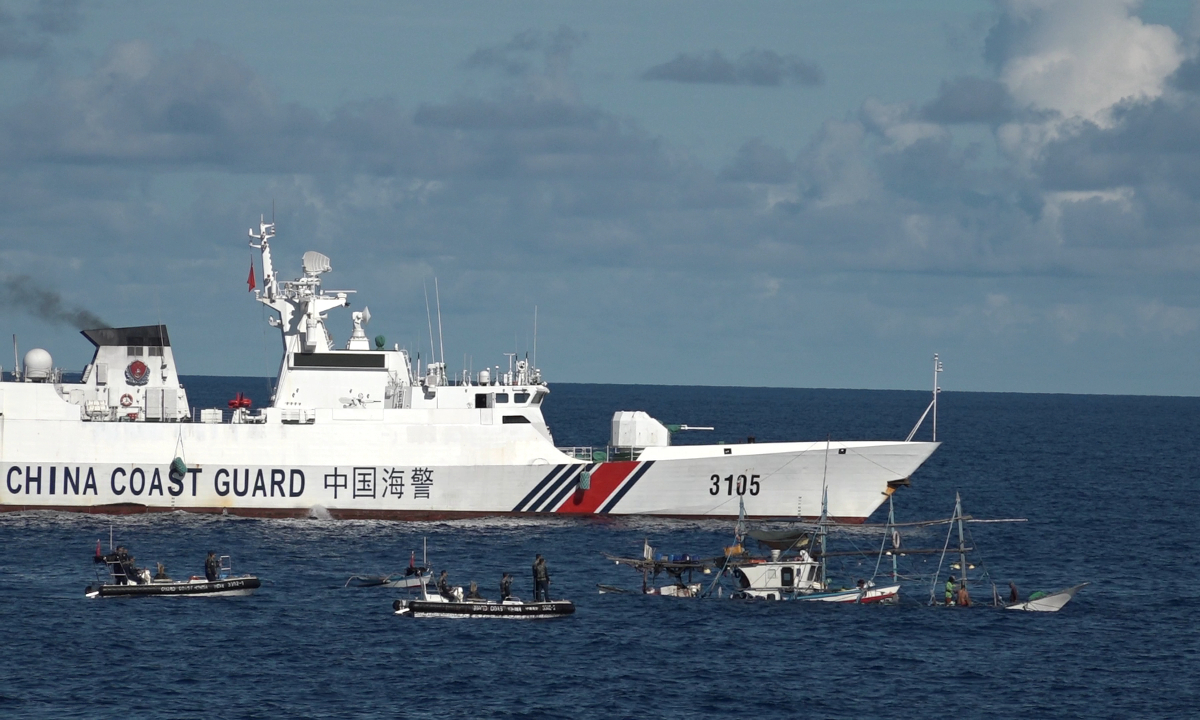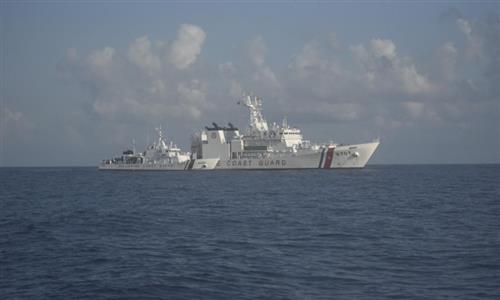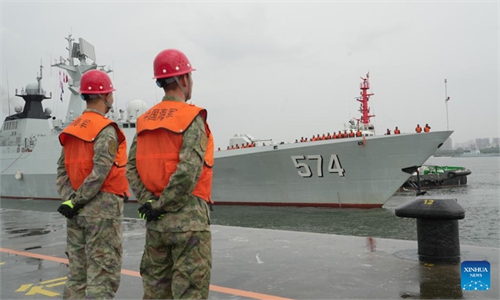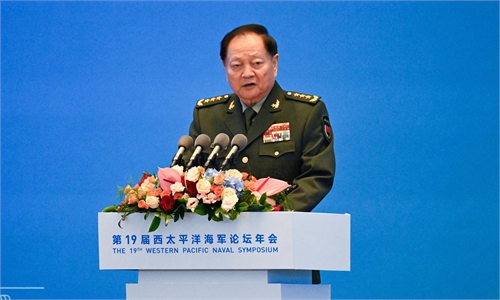
A China Coast Guard (CCG) vessel in patrol helps rescue a Philippine fishing boat in distress in the waters near China's Huangyan Dao, also known as Huangyan Island, in the South China Sea on June 29, 2024. Photo: Courtesy of China Coast Guard
A think tank warned of the risks of uncertainties and accidents more serious than ship collisions amid increasing Philippine air provocations on Chinese islands and reefs in the South China Sea. Experts emphasized that the withdrawal of Philippine forces and an end to provocations are the only way to resolve the situation.
Beijing-based think tank the South China Sea Strategic Situation Probing Initiative (SCSPI) analyzed the situation on Monday.
On August 28, the Philippines sent an H-145 helicopter and conducted airdropping of supplies to the Philippine Coast Guard ship MRRV-9701, which has been illegally anchored in the lagoon of China's Xianbin Jiao. The Chinese side monitored the entire situation, according to the China Coast Guard.
Counting more cases, the SCSPI said that the Philippines' incursions reflected Manila's running out of methods in maritime infringement given China's enhanced measures at sea.
Aerial encounters, especially confrontational ones, face much higher risks and uncertainties compared with maritime encounters. If the Philippines continues its aerial intrusions, China will be compelled to take corresponding measures, and in the event of an aerial collision, the consequences would be far more severe than those of a ship collision, the think tank warned.
From a technical point of view, the Philippine aircraft, fixed-wing planes or helicopters, have limited carrying capacities compared with ships, nor are they equipped with advanced avionics and sensors, so they cannot effectively carry out so-called supply or patrol missions, said a Chinese military expert who requested anonymity.
They are just political shows aimed at throwing mud at China, the expert said.
Xue Chen, a research fellow at the Shanghai Institutes for International Studies, said that China is fully capable of intercepting the Philippines' airdropping should it decides to do so.




